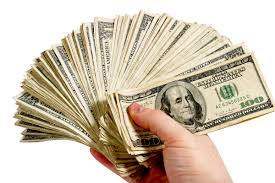记忆方法
1. adcash.com
中文词源
cash 现金
来自case, 箱子,特指钱箱。
英语词源
- cash
-
cash: [16] Cash originally meant ‘money-box’. English acquired it via French casse or Italian cassa from Latin capsa ‘box’ (source of English case). It was not until the mid 18th century that this underlying sense died out, leaving the secondary ‘money’ (which had already developed before the word entered English). Cashier ‘person in charge of money’ [16] is a derivative, coming from French caissier or perhaps from Dutch cassier, but the verb cashier ‘dismiss’ [16] is completely unrelated.
It comes from Dutch casseren, a borrowing from Old French casser ‘discharge, annul’. This in turn goes back to Latin quassāre ‘break up’, source of English quash.
=> case - cash (n.)
- 1590s, "money box;" also "money in hand, coin," from Middle French caisse "money box" (16c.), from Provençal caissa or Italian cassa, from Latin capsa "box" (see case (n.2)); originally the money box, but the secondary sense of the money in it became sole meaning 18c. Cash crop is attested from 1831; cash flow from 1954; the mechanical cash register from 1878.
Like many financial terms in English (bankrupt, etc.), ultimately from Italian. Not related to (but influencing the form of) the colonial British cash "Indian monetary system, Chinese coin, etc.," which is from Tamil kasu, Sanskrit karsha, Sinhalese kasi. - cash (v.)
- "to convert to cash" (as a check, etc.), 1811, from cash (n.). Encash (1865) also was sometimes used. Related: Cashed; cashing.
权威例句
- 1. All the bills had the same serial number. The cash was counterfeit.
- 所有钞票的序列号都是一样的。这些钱是伪钞。
- 2. This, after all, is a company which is awash with cash.
- 这毕竟是一家现金充裕的公司。
- 3. The war against drug peddling is all about cash.
- 禁毒斗争归根到底是钱的问题。
- 4. They prefer to bargain with individual clients, for cash.
- 在现款方面,他们更愿意同散户打交道。
- 5. How can I accumulate enough cash to get out of debt?
- 我怎么才能攒足钱还清债务呢?

